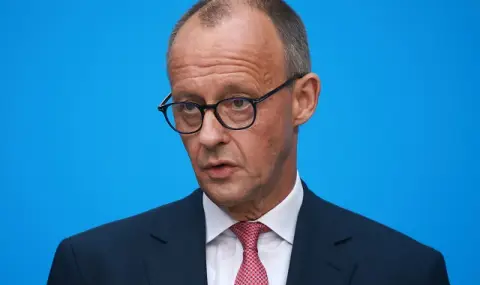Even as a young politician, Friedrich Merz shone as a good speaker and became a ray of hope for the CDU. After Merkel took over the leadership, he left politics. But after her resignation, he returned. The future Chancellor?
He is the main competitor of the Social Democrat Chancellor Olaf Scholz: the chairman of the Christian Democratic Union, Friedrich Merz, is the candidate for the chancellorship of the CDU/CSU and is considered the favorite. After a 12-year absence, he returned to the political scene in 2021 and now wants to take Scholz's place.
If elected, the 69-year-old Merz would be Germany's oldest chancellor since Konrad Adenauer. Adenauer was 73 when he was elected first chancellor of the new Federal Republic in 1949.
From politics to business
Both Scholz and Merz are lawyers, but the two are completely different types. The tall CDU politician immediately catches the eye as soon as he enters the room or takes the stage. In direct contact, he seems approachable and has a sense of humor.
Friedrich Merz is from the Sauerland region, a low mountain range in western Germany. In 1989, when he was 33, he was elected as a CDU MEP for a 5-year term. He then switched from the European Parliament to the Bundestag, where he quickly established himself as a skilled orator - his words carried great weight in the faction.
Friedrich Merz practically had two political lives: one before Chancellor Angela Merkel, and a second after her. After Merkel took over the CDU/CSU parliamentary group in 2002 and became Chancellor three years later, the much more conservative Merz withdrew from political life for many years.
As early as 2001, he ran for the conservative nomination for Chancellor in the 2002 Bundestag elections, but then the CDU nominated the Bavarian politician from the CSU, Edmund Stoiber. However, he lost the battle to the Social Democratic Party candidate Gerhard Schröder. Merz then withdrew from politics and returned to his legal profession. In the 2009 elections, he did not run for parliament.
After leaving politics, Merz pursued a career in the private sector. From 2005 to 2021, he was part of an international law firm and held high positions in supervisory and administrative bodies. From 2016 to 2020, he was chairman of the supervisory board of the world's largest asset management company Blackrock in Germany.
After Merkel announced that she would retire from politics in 2021, Merz returned and gradually rose through the ranks. In 2022, he was elected leader of the CDU - on his third attempt. At that time, he was known as an economically liberal representative of the conservative wing of the CDU.
"Problems with foreigners" and "small pastures"
In the 1990s, Merz voted in the Bundestag against the liberalization of abortion law and against preimplantation genetic diagnosis. When in 1997 the parliament adopted the idea that marital rape is a crime, like any other rape, Merz spoke out against it.
The CDU MP has always supported nuclear energy. He has called for a more liberal economic policy and a reduction in bureaucracy. About 25 years ago, Merz complained about the consequences of German migration policy, spoke of "foreigner problems" and insisted on a German "leading culture".
Now he is raising some of these issues again in a greatly changed situation - both politically and socially. At the beginning of 2023, Merz raised the topic of insufficient integration in Germany. In the popular political talk show on public broadcaster ZDF "Markus Lanz", he pointed out that there are "people in the country who don't really belong in Germany, who we tolerate for a long time, who we don't send back, who we don't deport, and who we then wonder why such excesses happen". According to Merz, many fathers did not want teachers, and especially female teachers, to have any authority over their children - children who were, after all, "little sheep".
Meanwhile, it seems that no one in the CDU leadership or in the CDU/CSU parliamentary group is objecting to such speech anymore. After Merkel left, many of her political associates who advocated a more progressive course also left.
The CDU leader may encounter some resistance more from the Bavarian sister party, the CSU. With a strong media presence, its leader Markus Söder - especially after losing the battle with Merz for the chancellorship nomination of the CDU/CSU - closely follows his every move, despite all assurances of loyalty. Recently, however, Merz seems to be losing some of his ground: On various occasions, he makes statements that he then has to correct.
Merz: "Now we are back on track"
On the political scene in Berlin, however, he has managed to initiate a change of course in the CDU parliamentary faction in key areas of German politics - a process that Merz is also driving in parallel throughout the party and which has now become part of his main program. The conclusion he draws in this regard: "Now we are back on track".
With all this, Merz is advocating a much more conservative CDU/CSU alliance. As he did 20 years ago, he is now considering a return to nuclear energy and calling for a more restrictive migration policy. After the collapse of the coalition between the Social Democrats, the Greens and the Free Democrats, he attacked their governing alliance, known as the "traffic light": "...their failure is also due to the fact that they lacked a common basis for coalition government from the very beginning," Merz stressed.
Now he is determined to replace Scholz and his minority government. With which coalition partners Friedrich Merz wants to achieve this - we have yet to find out.
